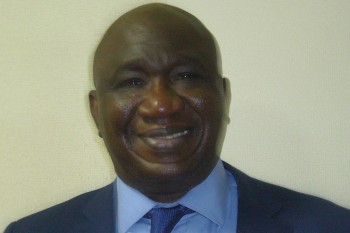Events
Recovery from Ebola Crisis and Growing Influx of Foreign Companies
— Would you tell us the features of Guinea located in West Africa?
Guinea was the first French African colony that gained independence by a public referendum. When French President Charles de Gaulle offered French territories a referendum on whether to join a new federal community or to become independent, Guinea’s voting population overwhelmingly rejected de Gaulle’s offer and instead chose complete independence; Guinea was the only French colony in Africa that did not accept the proposal. President Sékou Touré became the first president in 1961 and expressed, “Guinea’s independence is meaningless if the entire African continent is not freed” In the spirit of Pan-Africanism, he gave support to many Africans countries through their struggle for independence. Guinea currently chairs the African Union for 2017-2018. Our country has a wide variety of mineral resources such as gold, diamonds, and iron ore, and is the top bauxite exporter, having one third of the world’s bauxite reserves. We also have abundant water resources thanks to the rainy season that continues for half a year. Most of the large rivers in West Africa start from Guinea. About 65% of our population of 12 million is under 25 years old, which means that we have a large young labor force. Guinea is divided into 4 main regions where multiple specific ethnic groups reside, but is a peaceful nation without ethnic tensions, except during election periods.
— After the parliamentary election in 2013, the transition process to democratization has been completed. Do you see the recovery of political trust and relaxation of ethnic tensions?
After the 2-year transition military regime from 2008, the first democratic election was held in 2010, and President Condé was elected and was subsequently re-elected in 2015. Guinea continued its progress in democratization by adopting the multi-party system and holding national assembly elections. There are no ethnic confrontations. Guinea is in the process of transforming from a developing country to an emerging economy, and is actively undertaking summit diplomacy after rejoining the global community. Since we are a peaceful and politically stable nation, we are attracting more foreign investments.
— How is the recent economic situation? What are major objectives of the National Social and Economic Development Plan 2016-2020 (PNDES) which the Government implements?
Although the social economic development in Guinea temporarily slowed down in 2014 due to the Ebola fever epidemic, we recovered quickly from the crisis by December, 2015, thanks to President Condé’s strong leadership and assistance from Japan and the global community. The economic growth rate as of the end of 2016 is expected to be back to 6%. Guinea is a more open country today, and we have a growing influx of foreign companies because of our reliable political and social stability. Eleven airline companies are operating flights to Guinea. The major objectives of PNDES are to improve our social economic development, and to build a strong national economy by making the most of our rich mineral resources and economic growth potential. The current tasks include developing high-quality infrastructure, expanding the education system, and solving water sanitary problems. Among them, the most important is self-empowered development. The Private Investment Promotion Agency of Guinea has been set up to attract foreign investors and Guinean diaspora abroad to invest in Guinea. In June, we organized our first investment seminar in Japan with the presence of President Condé. We also hope that Guinean entrepreneurs residing in the United States and South Africa will resume their investments in Guinea.
— Japan and Guinea will celebrate the 60th anniversary of diplomatic relations next year. What is your priority mission for further strengthening the bilateral ties?
The two countries have established cooperative ties with each other in many different fields. Japan has consistently been providing assistance to Guinea since its independence, even during the Ebola fever epidemic, and is one of the biggest partners in terms of education, infrastructure, agriculture, and healthcare. Thanks to Japan’s economic cooperation, a cumulative total of more than 1500 elementary school classrooms have been built. And of particular note is the investment by the Nippon Koei Co. in social development, donation of a vessel for transporting bauxite, and reconstruction of Kaaka Bridge. Also important are the assistance in the area of food and health security, including the children’s nutritional improvement project as well as the water and sanitary projects. We are grateful for Japan’s sincere, honest, and unconditional cooperation. Even on the international level, the two countries are working jointly on global issues for peace and security. Japan has made a decision to open a JICA office in Conakry. Our priority is to strengthen the friendly and cooperative ties even further between the governments and between the citizens.
— How is the government tackling inflow of refugees from bordering countries?
Around 2000, an internal civil war broke out in Liberia and Sierra Leone, and Guinea accepted more than 2 million refugees who escaped the war zone. While the civil wars ended in several years, our country provided protection and support for those refugees based on the perspective of African solidarity and humanitarianism. Although there was no conflict between the Guinean public and the refugees, we endured a big environmental impact and social financial burden. Subsequently, the refugees were either returned or transported to other countries with the support from Western countries. Australia accepted more than 500 thousand refugees. Currently, Guinea is free of refugee problems, and also enjoys good public safety.
